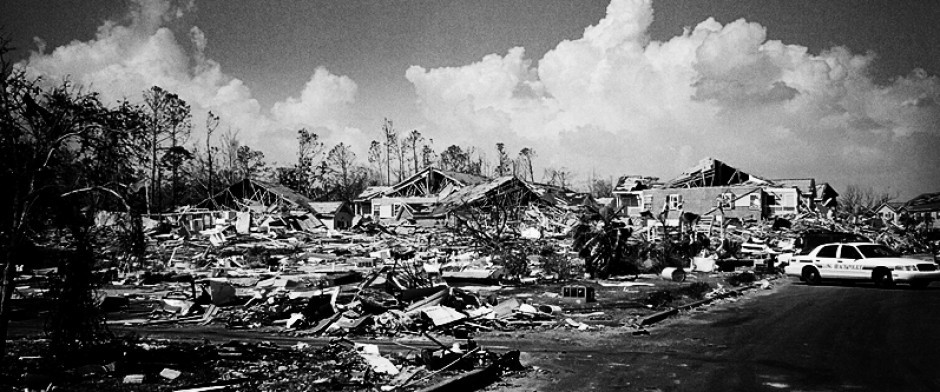The public is being provided very little information regarding the military’s response to the Ebola outbreak in West Africa. If large numbers of Americans become infected with Ebola, it will be critical to know what works and doesn’t work to protect and decontaminate yourself from Ebola. As such, one of the most critical pieces of information to know is what the US military is currently using as a decontamination agent for Ebola. The public may know about bleach and UV decontamination, but are being told nothing about the military’s latest frontline chemical agent against Ebola. The Department of Defense (DoD) is currently buying this chemical by the tanker. In fact, the DoD has essentially bought up the world’s market of this highly effective chemical and yet, you have probably never heard of HOCL. If you haven’t heard of HOCL, you need to. Read more
Tag Archive for west Africa
Despite WHO’s Confidence, Mali Becomes 6th West African Nation With Ebola
In yet another blow for the doctors fighting the spread of this deadly disease, AP reports, Mali’s health minister says the West African country has confirmed its first case of Ebola. Despite every effort to close borders, quarantine areas, and now send US troops (to do… well we are not sure really), Mali becomes the sixth West African country to report an Ebola case.
To read more go to: http://www.zerohedge.com/news/2014-10-23/mali-becomes-6th-west-african-nation-ebola
The Real Threat from Ebola is Economic Vapor Lock and Collapse
Outside of three West African nations, which are being ravaged by Ebola, the health threat from Ebola still remains small. Am I dismissing the risk of further spread? No. Am I dismissing the fact the numbers infected are still exponentially increasing? No. Am I even claiming that Ebola won’t return to the US and spread globally? No. What I am saying is that for those of us in the US, the biggest danger Ebola poses to the masses in the near term is economic. In fact, if you want to best prepare for an Ebola pandemic, you should prepare for an economic collapse, which will affect you long before you run a real risk of infection. Read more
Ebola: When to Act
Recently, many of our readers have become very concerned about the on-going Ebola outbreak that has spread across West Africa. In particular, they want to know if this disease is something to worry about and when and how they should hit the bug out button. The answers to these questions now are relatively simple, but as this disease evolves, possible contingencies may arise where one must be prepared to take more drastic measures.
To begin, Ebola is a fatal communicable disease where up to around 90% of patients die. This particular strain does not appear to be as fatal, but has spread over a much broader region. There is no known cure and treatment is generally limited to providing pain management and fluids. The disease is transmitted by close contact with an infected person’s bodily fluids that include sweat, vomit, and most likely saliva. It does appear possible that the disease has some persistence and items contaminated with infected body fluids can transmit the disease until sterilized or disinfected. Also, the virus can be transmitted from an infected corpse after the person has died making burial and handling of bodies very risky. At this time though, the disease is not airborne and effective precautions can be taken to mitigate the spread. Nonetheless, to date, over 100 health care workers that did take “proper precautions” have become ill with the disease and most have since died. Further, it is important to note that a virus by its design mutates to survive. It is possible that in a worst case scenario, Ebola could mutate to be an airborne virus. This would constitute a biological worst case scenario that would quickly become a worldwide pandemic. Still though, for the virus to rapidly spread, it doesn’t require it to be airborne. In an area like West Africa where diseases are already endemic, understanding of the disease is poor, and hygiene and health care services are inadequate, the disease is now spreading like wildfire. In fact, since the virus has made its way out of the jungles and into the cities, Ebola escaped our best chance to contain the virus and is now exponentially spreading.
The Centers for Disease Control (CDC) has instructed the public not to worry and said that Ebola does not pose a threat to Americans. However, actions speak louder than words. The CDC declared a Level 1 health emergency, which is its highest threat level, making one wonder why the CDC would go on its highest state of alert if the public has “nothing to fear” as the government claims. Since then, a growing number of Americans are being tested for Ebola “symptoms,” but the government has not released the details of these possible cases even as the numbers grow. This leads one to conclude the government is trying to suppress the true danger of this disease to prevent panic all while hiding behind medical privacy. Further, other countries are taking Ebola very serious. Nigeria recently declared a state of emergency after at least five people in and around Lagos were confirmed to have Ebola and Sierra Leon and Liberia are deploying troops and closing borders. The World Health Organization has also declared the Ebola outbreak as out of control and declared it a health emergency. So, even if the CDC says not to worry, it is clear governments are very worried. In fact, when the government says stay calm and don’t panic, it is probably time to become worried.
Extremely worrisome is the fact it appears that the US government and CDC are trying to calm nerves with faux action designed more to prevent hurt feelings than to stop the spread of a deadly disease. Instead of closing down our borders and restricting travel to and from countries known to have active Ebola outbreaks, the US government announced it was only stepping up the screening of passengers for symptoms coming from countries in West Africa. Those that understand the disease should quickly realize the ridiculous ineffectiveness of this strategy. Specifically, the disease can take up to 21 days for a patient to become symptomatic after exposure to Ebola. Although a patient is only believed to be contagious while actively showing symptoms, the infected person could easily move through international airports around the world for weeks before any symptoms arise. This means individuals with Ebola could already be inside the US and easily pass through our ports of entry with the disease. Further, once here, it would likely be a number of days before an infected person sought medical help for their worsening symptoms that first present like any other bad flu. During this time, even one infected person could come into contact with thousands of other people and unknowingly infect many. As this disease spreads into the urban populations, it has the potential to quickly overwhelm medical facilities and fuel very real panic.
So to answer your questions, yes, Ebola is something you should worry about, but radical action at this time would be premature. I have read many articles that claim Ebola is being used to create panic and sell vaccines. These articles often seem to imply that because a pharmaceutical company may seek to profit off of this disease that somehow the disease is overblown or not a threat. This logic is plain stupid and although companies may indeed exploit this situation, it by no means mitigates the disease threat to you and your family. Ebola has not yet spread to the point that one should consider bugging out/in. However, after analyzing the spread of the disease in West African cities, it is clear the numbers of infected hit a critical tipping point approximately two weeks ago and is now exponentially spreading. As such, I predict with a high level of assurance that Ebola will begin to be confirmed in major cities around the globe over the next two weeks. As the cases are confirmed and patients are moved to quarantine in hospitals, a growing number of health care workers will contract Ebola. This will begin a cycle that could quickly strain the health care system if the disease is not contained within days from this post.
If Ebola breaks out in major cities around the world, as it now looks increasing likely, this is when you will need to start looking at a bug out/in option. Right now, if you have not done so, you should be stocking up on decontaminates like hydrogen peroxide and Clorox as well as medical grade masks, gloves, face shields, and gowns. These items will become nearly impossible to get once Ebola goes mainstream in major cities around the world. Note that these items alone will not protect you from Ebola contamination if you are in direct close contact with an infected patient, but they will give you some stand off and ability to decontaminate your own living spaces. For proper precautions against Ebola, one would need to be fully covered in duplicate full body suits and ideally have a totally contained suit with its own oxygen supply. Depending on how the outbreak develops, if it becomes clear hospitals in the US are receiving a growing number of Ebola patients, which almost definitely would correspond with a growing number of health care workers contracting the disease, it would be wise to go ahead and pull your kids from school and take a long term leave of absence from work. In short, this is when one should be ready to leave town.
My personal trip wire for bugging out parallels this logic, but is a tiered response. Specifically, as I monitor the disease outbreak, I initially self-segregate from others and highly populated areas as much as possible. This includes restricting my travel through major transportation hubs and completely avoiding large public gatherings. I also mandate constant hand washing and implement more severe disease mitigation strategies around my work and home. Further, I try to get what I can delivered to my house and do any residual necessary shopping when the fewest number of people are out, usually in the early morning or late evening. I also will not shake hands and forego any type of hugs or physical contact with others. If the disease spread worsens, I then close up shop and move all my operations to an offsite interim bug out location. This location is far safer, more secure, and requires only the most minimal contact with the outside, but one which is still in contact with my work, small town America, stores, and supplies if needed. If the disease outbreak moves to Middle America and continues to spread, I execute my full scale bug out contingency and lock down my retreat. Until the disease has a vaccine or burns itself out, I remain completely isolated from anyone that wasn’t a part of the initially quarantined group. This makes bugging in a poor choice for those located in urban areas where the disease spread will always be worse. If at all possible, remove yourself and your family/group to a remote bug out location and monitor the crisis safely from the radio, internet, and TV. Your guiding principles should be the sooner you leave the better and the fewer people you have contact with the safer. You also should not advertise your plans and destination, but rather use a viable cover story if necessary for work and school to explain the absence. Ultimately, each one of your situations is unique and will require a custom tailored response; however, always trust your good judgment and maintain a bias for action. Do not rely on the government to help you or to tell you when it is too late. Remember that when the government steps in, it will be because it is already too late and their mission is not to protect you, but rather, retain their control. This will almost certainly not work out well for you if your plan for survival relies on the government to save you so act now, the clock is ticking.
Stay safe and healthy,
Guiles Hendrik
August 8, 2014
All rights reserved.




